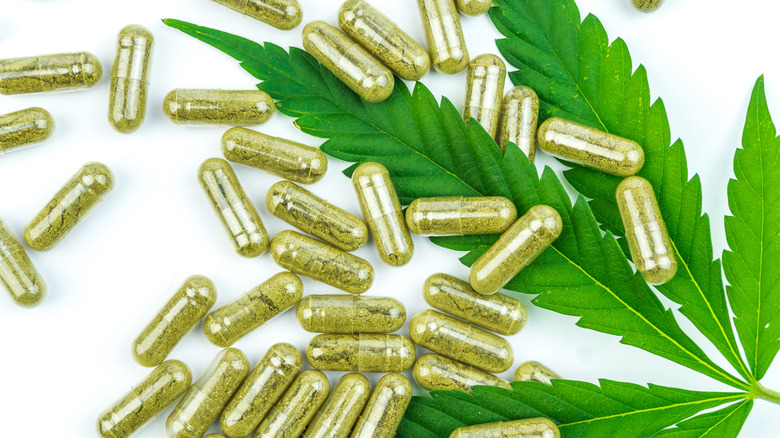You Should Stop Using CBD If This Happens To You
Cannabidiol (CBD) is a chemical derived from the cannabis sativa plant, which many people also refer to as hemp. CBD is an ingredient in marijuana. However, CBD does not contain tetrahydrocannabinol (THC), the ingredient in marijuana that creates the high. While CBD does seem to affect the brain chemically, it does not have the same effects as THC.
Since gaining certain levels of legal status in 2018 in the U.S., CBD has become more popular in the mainstream. The U.S. Food and Drug Administration (FDA) approved it as a prescription drug for epilepsy. It is now also legal to include CBD in certain "cosmetic" products (via WebMD). It is worth noting that, while the FDA has approved CBD to treat epilepsy, more research is needed to understand its chemistry and effects on the body.
CBD products are not yet regulated, meaning they are not FDA-approved. The government currently regards the CBD industry as somewhat of a "wild west." Certain manufacturers make baseless claims that CBD is a cure-all for major diseases when there is little scientific evidence supporting these theories. However, medical experts are open to the notion that CBD can be a "relatively non-toxic option for managing anxiety, insomnia, and chronic pain," according to Harvard Medical School. CBD products are available in a variety of forms, including oils, gummies, extracts, and topical solutions.
The risks and side effects of CBD
Since CBD products have not been FDA-approved, there is a good chance that the item you're using has not been thoroughly evaluated. This means there are serious health risks that you need to weigh when considering using an unregulated CBD product.
According to Verywell Mind, you may want to stop taking CBD if you experience certain symptoms and side effects that have been known to occur in relation to consuming it. These common side effects include drowsiness, stomach issues, dry mouth, nausea, and interference with medications.
If you want to try CBD as a method to alleviate a health issue, arm yourself with applicable research and proceed with some caution. Discuss your plans with your doctor to get their opinion as to whether this is best for your health. They can also provide information regarding specific supplements, appropriate dosages, and length of usage.


